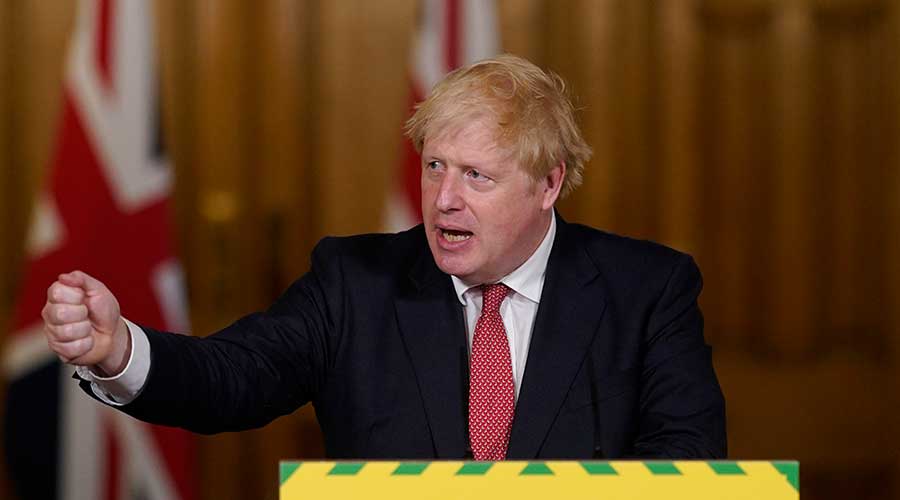The campaign to get rid of Boris Johnson took a sinister twist on Thursday when some members of his government were accused of trying to blackmail dissenting Tory MPs who want a new Prime Minister to take over.
This brought an accusation from the Lib Dem leader Ed Davey that Boris was “acting more like a mafia boss than a Prime Minister”.
Boris told reporters he had “seen no evidence” to back up the blackmail claims. But asked if he would look for evidence, he replied: “Of course.”
The last fortnight has been especially difficult for Boris, not only politically with a number of Tory MPs asking him to step down over “Partygate” but also at a personal level.
It was revealed that Boris and Carrie’s six-week-old daughter, Romy, was “badly hit” by Covid although the baby is now on the mend. Boris himself nearly died from Covid in April 2020 when he had to be treated in the intensive care unit at St Thomas’ Hospital in London. But the feelings of affection he inspired then have largely dissipated.
The blackmail claim was made by a senior Tory MP, William Wragg, who read out a statement before the Commons Public Administration select committee that he chairs was supposed to take evidence.
Wragg, who has been the MP for Hazel Grove in Greater Manchester since 2015 and is one of those calling for Boris to resign, said: “In recent days a number of Members of Parliament have faced pressures and intimidation from members of the government because of their declared or assumed desire for a vote of confidence in the party leadership of the Prime Minister. It is of course the duty of the whips’ office to secure the government business in the House of Commons.
“However, it is not their function to breach the ministerial code in threatening to withdraw investments from Members of Parliaments’ constituencies which are funded from the public purse.
“Additionally, reports to me and others of members of staff at Number 10 Downing Street, special advisers, Government ministers and others encouraging the publication of stories in the press seeking to embarrass those who suspect lack in confidence in the Prime Minister is similarly unacceptable.
“The intimidation of a member of Parliament is a serious matter. Moreover, reports of which I’m aware would seem to constitute blackmail. As such it would be my general advice to colleagues to report such matters to the Speaker of the House of Commons and the Commissioner of the Metropolitan Police. They’re also welcome to contact me at any time.”
His charges were taken seriously by the Speaker, Sir Lindsay Hoyle, who responded: “Serious allegations have been made and at that stage, without having had chance to study what was said in detail, I can only offer general guidance.
“Those who work for them are not above the criminal law. The investigation of allegedly criminal conduct is a matter for the police and decisions about prosecution are for the CPS (crown prosecution service). It would be wrong of me to interfere with such matters.
“While the whipping system is long-established, it is of course a contempt to obstruct members in a discharge of their duty or to attempt to intimidate a member in their Parliamentary conduct by threats.
“There is a clear process for raising privileged matters and referring them for investigation to determine whether the conduct in question is a contempt, and members in the first instance raising such concerns should write to me.”
One rebel MP told the BBC that some dissenters had been threatened with funding cuts, whilst an impending shake-up of parliamentary boundaries due next year had also been used to put down rebellion – “it’s been done to the weakest to make an example”, according to the MP.
But others, who have also come out against Boris, said they had faced no intimidation. Wednesday’s defection to the Tory MP Christian Wakeford to the opposition Labour party has had the effect of rallying the “troops” behind Boris. It is believed that between three and seven MPs have withdrawn their letters calling for the prime minister’s resignation. One of them commented: “Wakeford has saved Boris.”
Analysts add, however, that Boris is still not out of danger and it could all change when senior civil servant Sue Gray submits her report into “Partygate” possibly next week.

